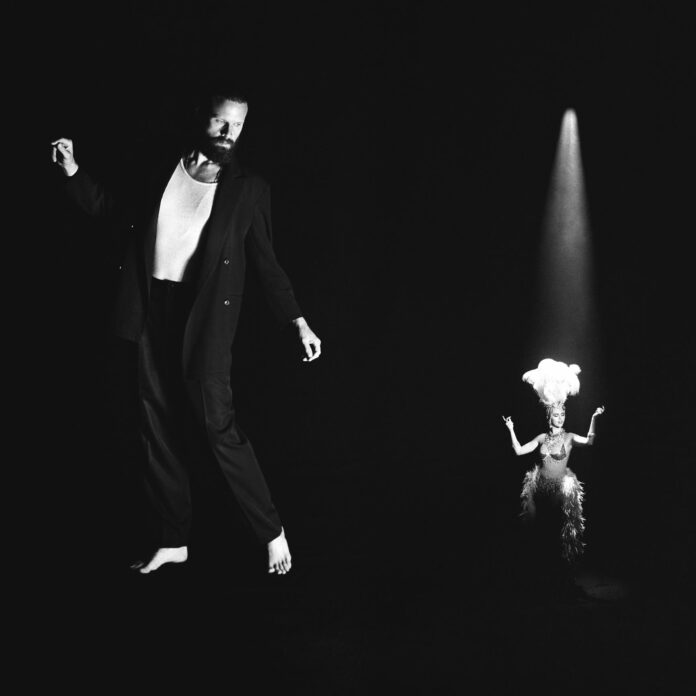There’s always been something broken about Father John Misty – that much has been clear since Josh Tillman released his first album under the moniker, Fear Fun, ten years ago. His songs have often revolved around self-destruction, whether he’s scrutinizing his own problematic behaviour or pontificating about the failures of the human race, and his response to the ceaseless cycle usually boils down to, “That’s just the way things are.” His albums barely leave room for redemption or the possibility of change, yet his ability to toe the line between sincerity and cynicism while keeping up an elaborate act makes them consistently engaging. Things took a significant turn on 2018’s God’s Favorite Customer, however, as Father John Misty finally stripped back the façade to reveal the fractured nature of his persona.
As a musical statement of its own, God’s Favorite Customer was the singer-songwriter’s most approachable and heartrending effort to date – you wouldn’t think people would want to hear a Father John Misty album that’s apparently more self-involved, but it was easier to warm up to his meta approach when the stories weren’t wrapped up in his own mythology, even if they’re still all about him. It was just as easy to be skeptical when considering his next move, though – how likely was it that Tillman would be content to stay in this plainspoken mode, and that this wasn’t just one stop in an ever-expanding narrative? Rather than a radical progression from 2017’s Pure Comedy, a magnificent album for almost entirely different reasons, the two records – one exhibiting pompous intellectualism and the next straightforward vulnerability – might have represented two poles that Father John Misty could comfortably oscillate between for the rest of his career.
Chloë and the Next 20th Century, his fifth studio album, doesn’t support this theory. Tillman has shifted his focus yet again, and this time the premise is even harder to believe: Father John Misty is no longer writing about himself. Or, at least, he’s no longer the protagonist of his own stories, as if the raw emotion displayed on God’s Favorite Customer forced him to step aside and escape into fiction. Self-destruction is still a primary concern – the cast of characters include Chloë, a “borough socialist” with a shoplifting habit, Simone, a struggling author who’s “outed for her privilege,” and Funny Girl, a young actress whose “schedule’s pretty crazy/ doing interviews.” Misty finds subtle ways of inserting himself into the frame, whether he’s imploring Chloë not to ever change or asking Funny Girl to “pencil in an industry outsider.” These moments create a sense of unease, rupturing the illusion of romance accentuated by the album’s luscious orchestral arrangements and drawing attention to the intricate detail of Tillman’s storytelling.
If evoking Old Hollywood glamour and debauchery seems like a reversion to Father John Misty’s origins, Chloë and the Next 20th Century suggests he’s learned a few lessons from the painful, isolating circumstances that led to its predecessor. In other words, it sounds like a fresh start. While Tillman mostly removes himself from view and obfuscates his role in the narrative, he approaches the songs from a place of genuine compassion rather than ironic detachment. Instead of delivering a witty, self-lacerating critique of the entertainment world, he tells affecting, nuanced stories of people – fictional, but not purely symbolic – looking for something to hold onto before the inevitable collapse. The more intimate they are, the more they resonate: on ‘Goodbye Mr. Blue’, the death of a pet becomes an opportunity for two ex-lovers to rediscover tenderness. “Love’s always gonna leave ya/ No matter what they say,” Tillman concludes, and then, on ‘Kiss Me’, finds a more mature and compelling way to the truth: “Love’s much less a mystery/ Than who you give it to.”
Maybe that’s why Chloë and the Next 20th Century lacks the conceptual grandiosity of Father John Misty’s earlier work: that’s not where the intrigue lies. These are warm, gentle, and often stunning songs that charm before they have the time to creep up on you. They’re less interested in the idea of love than what it makes us do. If there’s a duality to the album, it’s evident in the two half-title tracks that bookend it: the swooning theatricality of ‘Chloë’ and the ponderous yet chilling ‘The Next 20th Century’. The latter ambitiously connects the themes of this album with the apocalyptic mood of Pure Comedy, imagining a world where humanity has lost control of its own progress. After a stream of references and dreamlike imagery, Tillman makes his own voice clear: “I don’t know ‘bout you/ But I’ll take the love songs/ And give you the future in exchange.” The nostalgic sounds that opened the album seem far away, as does the fragility of its narrator; he recognizes the dangers of escapism, but is all but hopeless knowing what pieces of the past are worth preserving.

